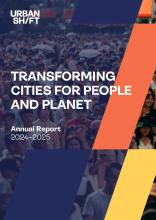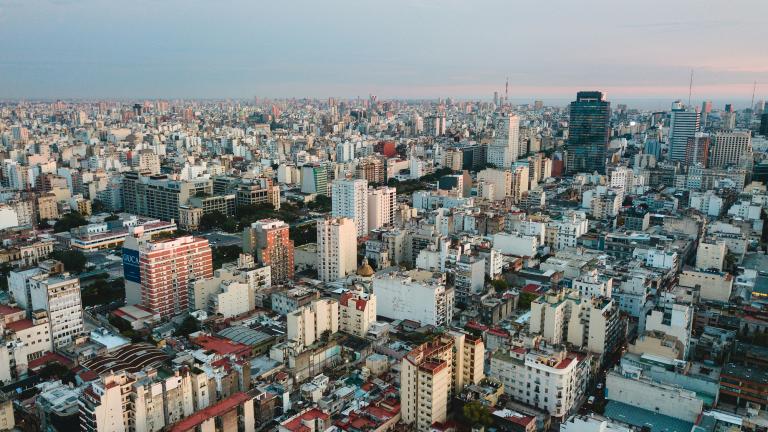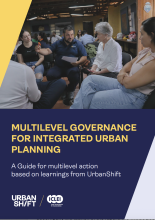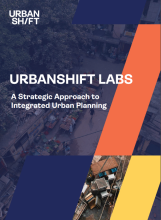
Promoting Sustainable Urbanization for Global Environmental Goals: Learning from the GEF's Sustainable Cities Program
The GEF Sustainable Cities Program workshop highlighted that integrated planning, governance, finance, and nature-based solutions are essential for sustainable and resilient urban transformation.
As part of its integrated approach programming that targets the sustainable transformation of key systems, the GEF launched the Sustainable Cities Program (SCP) during the sixth GEF replenishment cycle (GEF-6, 2014-2018) as a flagship program focusing on urban system transformation. The SCP focuses on the drivers of environmental degradation in the urban system and advances integrated solutions to generate global environmental benefits along with social and economic gains.
From an initial focus on tackling drivers of greenhouse gas emissions during the GEF-6 pilot phase, the program expanded in GEF-7 to address multiple environmental challenges through integrated urban planning and then advanced in GEF-8 by focusing on systems transformation. Collectively, the program supports nearly 100 cities across 33 countries to adopt nature-positive, net-zero, resilient and circular pathways of growth.
Building on nearly a decade of investments in the Sustainable Cities Program, the GEF Secretariat in collaboration with the program lead agencies—the United Nations Environment Programme (UNEP) and the World Bank—convened a technical learning workshop in April 2025 to synthesize initial lessons from the SCP. The workshop took place in UNEP’s Paris office, with over 40 participants from the GEF Secretariat, GEF Agencies, implementation partners, the GEF Scientific and Technical Advisory Panel, the GEF Independent Evaluation Office, and external experts from academia and research organizations.
The workshop focused on global urbanization trends and their links to climate, nature loss, and pollution; summarized insights from the GEF's Sustainable Cities Program; and identified key lessons, challenges, and opportunities for integrated sustainable urban development.
This report summarizes strategic insights emerged from the discussions, offers concrete examples, and presents recommendations and key takeaways from the workshop for global uptake.

UrbanShift Annual Report 2024-2025
UrbanShift's final Annual Report spans an impactful year of over 30 events and major progress across our network of 23 cities.

What's Next for the UrbanShift Network?
As the UrbanShift Global Platform concludes, the next phase of the GEF Sustainable Cities Impact Program will build on the momentum and progress for sustainable and resilient cities.

MULTILEVEL GOVERNANCE FOR INTEGRATED URBAN PLANNING
This report outlines key learnings and insights from UrbanShift's Multi-Level Governance Dialogues.

UrbanShift Labs
Summarizing insights and lessons from eight of UrbanShift's Labs, this report offers a template for furthering geospatial analysis in cities.
